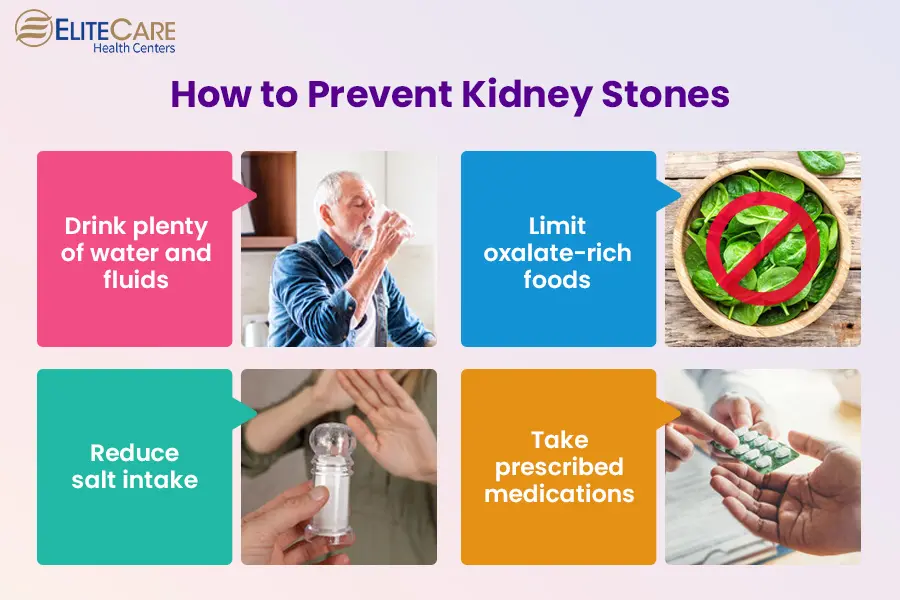Comparing Kidney Stones vs UTI: What You Need to Find Out About Their Impact on Health and wellness
Comparing Kidney Stones vs UTI: What You Need to Find Out About Their Impact on Health and wellness
Blog Article
Comprehending the Secret Distinctions In Between Kidney Stones and Urinary System System Infections: A Thorough Overview for Patients
Recognizing the differences in between kidney stones and urinary tract infections (UTIs) is vital for individuals that might be experiencing comparable signs and symptoms yet face vastly different health and wellness difficulties. As we check out these important facets, it comes to be clear that identifying the one-of-a-kind characteristics of each problem can profoundly influence patient end results.
Overview of Kidney Stones
The formation of kidney stones, a often devastating and agonizing condition, emphasizes the vital significance of keeping renal wellness. The main kinds of kidney stones consist of calcium oxalate, calcium phosphate, uric acid, struvite, and cystine stones, each with distinctive causes and threat elements.
Several aspects add to the formation of kidney stones. Dehydration is a significant danger, as insufficient liquid consumption can result in focused urine, promoting crystal development. Dietary practices, consisting of high sodium and oxalate usage, can aggravate the danger. In addition, metabolic disorders and specific clinical problems may incline people to stone formation.
Symptoms of kidney stones can include extreme flank hematuria, pain, and nausea, which typically motivate immediate clinical analysis. Therapy options vary, ranging from increased fluid intake and dietary modifications to medical interventions such as lithotripsy or surgical removal, depending upon the size and location of the stones. Understanding these aspects is important for efficient prevention and management.
Summary of Urinary Tract Infections
Urinary system infections (UTIs) represent a typical yet significant wellness worry, influencing millions of individuals every year. These infections happen when bacteria go into the urinary system, which consists of the kidneys, ureters, bladder, and urethra.
The danger variables for creating a UTI consist of sexual activity, particular types of birth control, urinary retention, and a history of previous infections. Straightforward UTIs are typically restricted to the bladder and are extra common in healthy people, while complicated UTIs may involve the kidneys and happen in those with underlying wellness concerns.
Motivate diagnosis and treatment are necessary to protect against issues, such as recurring infections or kidney damages (Kidney Stones vs UTI). Generally, UTIs are treated with anti-biotics, and safety nets can be utilized for those with constant occurrences
Typical Symptoms Contrast
Symptoms of urinary tract infections and kidney stones can usually overlap, resulting in complication in medical diagnosis. Both problems can provide with pain in the lower abdomen or back, but the nature and area of the pain typically vary. In urinary system system infections (UTIs), clients normally experience a burning experience during peeing, frequent urges to pee, and over cast or strong-smelling pee. On the other hand, kidney stones tend to create severe, acute pain that radiates from the back to the reduced abdomen and groin, commonly referred to as colicky discomfort.
In addition, UTIs may be come with by high temperature and cools, specifically in much more severe situations, while kidney stones can lead to nausea and throwing up due to intense discomfort. While pain throughout peeing is a characteristic of UTIs, kidney stones generally offer with even more severe discomfort episodes, which may go and come.
Diagnosis Methods
Just how can health care specialists accurately set apart between kidney stones pop over to this web-site and urinary system infections? The diagnostic procedure starts with an extensive case history and a comprehensive review of the individual's signs. Medical professionals commonly do a checkup, which might reveal tenderness in the abdomen or flank region, directing the diagnostic path.
Research laboratory tests play a crucial role in distinguishing in between these 2 problems. Kidney Stones vs UTI. A urinalysis can identify the existence of blood, crystals, or germs, which are indicative of either problem. In situations of urinary tract infections, the urinalysis might show a considerable presence of leukocyte and nitrites, while kidney stones may present with certain crystals
Imaging studies, such as stomach ultrasound or computed tomography (CT) scans, are necessary for imagining kidney stones. These imaging techniques make it possible for health care suppliers to examine stone size, area, and potential blockages in the urinary system system. In comparison, urinary system infections normally do not require imaging unless issues are suspected.
With each other, these diagnostic methods equip medical care experts to accurately distinguish and diagnose in between kidney stones and urinary system tract infections, guaranteeing that patients get proper treatment and administration.
Treatment Options and Prevention
While both kidney stones and urinary system system infections (UTIs) require prompt therapy, their administration strategies vary significantly.
The therapy for kidney stones often entails pain administration, hydration, and sometimes, medical treatments such as extracorporeal shock wave lithotripsy (ESWL) or ureteroscopy to get rid of or damage down stones. Clients are regularly encouraged to increase fluid consumption to assist in stone flow and minimize reappearance. Dietary modifications may also be essential, depending on the stone kind.
On the other hand, UTIs are mostly treated with antibiotics to eradicate the bacterial infection. The certain antibiotic recommended depends upon the germs determined and regional resistance patterns. Added actions, such as raised fluid consumption and urinary analgesics, may assist ease signs and symptoms.
Avoidance methods differ too; for kidney stones, keeping appropriate hydration and sticking to nutritional limitations can be efficient. For UTIs, preventive methods include proper hygiene practices, urinating after sexual intercourse, and potentially prophylactic antibiotics for recurring infections. Comprehending these therapy and avoidance methods is crucial for effective management and to reduce the risk of complications connected with both problems.
Final Thought

Understanding the distinctions in between kidney stones and urinary system tract infections (UTIs) is vital for individuals that might be experiencing similar symptoms yet face vastly different health challenges. The main this link types of kidney stones consist of calcium oxalate, calcium phosphate, uric acid, struvite, and cystine stones, each with distinctive reasons and risk variables.

Report this page